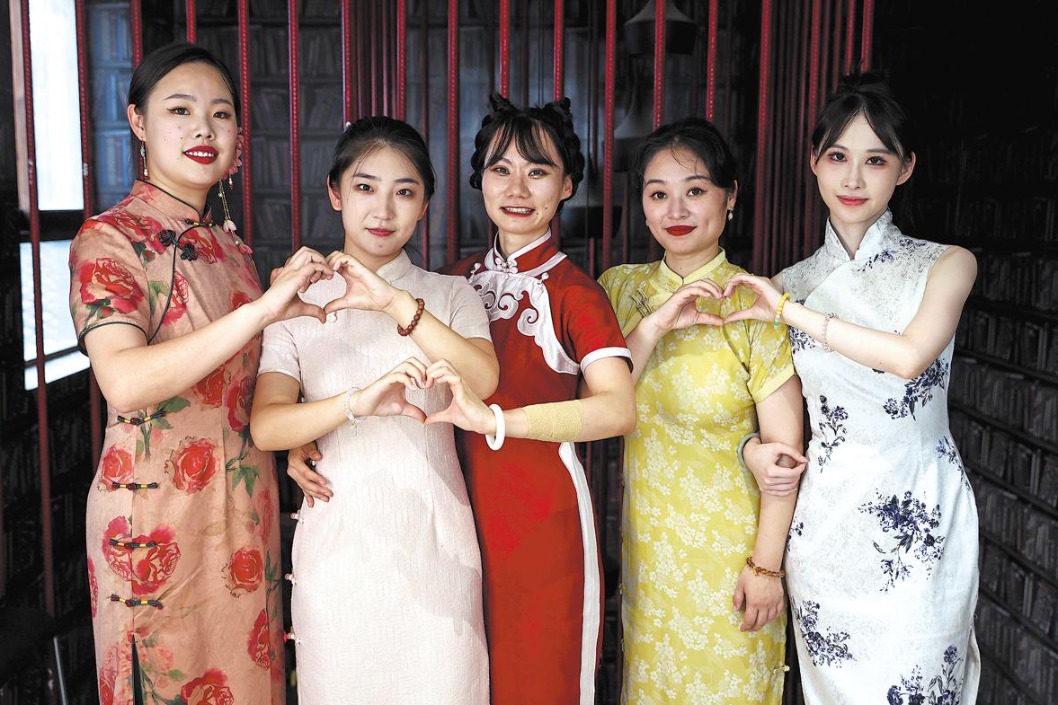Traders grow with Xinfadi

Over the past three decades, the Xinfadi market has grown into China's biggest wholesale food facility, despite having started as just 10,000 square meters overseen by 15 administrators.
As business flourished, the number of retailers swelled. Coming from a range of backgrounds and different areas of the country, they not only made their fortunes but also made a huge contribution to the development of Xinfadi.
'Pomelo king'
Chen Deqing is nicknamed the "the pomelo king". In 1988, he and his parents started selling the fruit in his hometown in the eastern province of Zhejiang. In 1997, Chen decided to try his luck in Beijing and headed for Xinfadi.
At the time, few people in North China had heard of pomeloes and even fewer were interested in tasting them. Sales were bleak that year.
Chen was not discouraged. He believed the poor sales were due to low awareness of the fruit, ways of eating it and its nutritional benefits, such as its ability to help lower blood pressure and alleviate muscle cramps.
To reach more buyers, he began parking a truck full of pomeloes in front of major businesses and educational institutions, offering people free samples to encourage them to buy.
This marketing ploy and Chen's persistence helped his fruit gain popularity and he acquired a good reputation.
As the Beijing market became more open, wholesalers from the suburbs, as well as neighboring Hebei and provinces in the northeast, began to rush to purchase pomeloes from Chen.
Zest for life
Ma Guoshui owns a company that sells oranges at the Xinfadi market. He said the early years he spent there saw his business grow at its fastest rate.
Ma was born into a farming family in Hebei province. In 1991, while in his early 20s, he left home to try his luck in Beijing.
He had just 10 yuan in his pocket, so he stayed with a cousin who sold vegetables for a living. Seeing his cousin's higher income, Ma asked if he could join the business.
He borrowed 30 yuan from his cousin and started selling fruit and vegetables all over the city, using an old pedicab to transport his goods.
He sold lettuces, cherries, melons, pears and apricots at different markets until 2006, when he started a company and moved into Xinfadi to bolster his business.
Ma said his success can largely be attributed to the strengths Xinfadi offered. "When I first came to the market, I was struggling to find a secure supplier," he said.
One day, he saw a TV program about a species of orange grown in Jiangxi province, so he contacted the local government, which offered him a lot of help in the years that followed.
"Without this market (Xinfadi) as a big platform, the local government wouldn't have been able to offer so much support. It was through this platform that my orange sales were able to rise year after year," he said, adding that equally important, the market provides a fair and safe trading environment.
Sideline support
Pan Xiaohai, who owns a business that sells watermelons at Xinfadi, grew up in a poor farming family in the northeastern province of Jilin.
When his father died in 1989, the 17-year-old had to care for his ailing mother, two younger sisters and a younger brother.
In 1990, Pan came to Beijing by himself and started working as a porter at the capital's largest watermelon market.
To make more money and support his family back home, he loaded and unloaded trucks at the market by day, while at night he collected unsold or slightly damaged watermelons and sold them from a battered tricycle.
The sideline was a success. "I never imagined I could earn more than 100 yuan in a single night. I found that doing business was much better than being a manual laborer," he said.
In 1998, Pan came to Xinfadi, looking to develop his business. He received strong support from Zhang Yuxi, the market's president.
Pan quickly realized that the market sold very few out-of-season fruits or vegetables, especially during winter.
"The watermelons sold in Hainan, Vietnam and Myanmar (all tropical regions) in winter barely reached the market in the north of the country," he said. After discovering the gap, Pan began to ship high-quality watermelons from Hainan (China's most southerly province) to Xinfadi, and watched as they sold out quickly.
Today, he has established agricultural bases covering over 6,600 hectares in 10 provinces, as well as in Vietnam, Myanmar and Russia.
The local governments have commended Pan for providing jobs for hundreds of thousands of farmers, and for the many donations he has made to help victims of natural disasters.
Today's Top News
- China to open its door to foreign investment wider
- China criticizes Canadian tariffs on products containing Chinese steel
- US legislative chaos undermines its democracy
- Why China is irreplaceable in supply chain
- China's FDI inflow tops $700b since 2021
- Australia, China set to bolster steel partnership






























